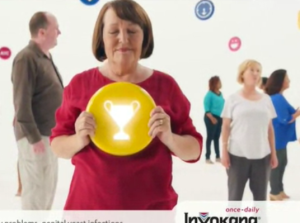Thursday, December 31, 2015
Wednesday, December 30, 2015
Tuesday, December 29, 2015
Monday, December 28, 2015
Sunday, December 27, 2015
Saturday, December 26, 2015
Friday, December 25, 2015
Thursday, December 24, 2015
Wednesday, December 23, 2015
Tuesday, December 22, 2015
ICH endorses a faster, less expensive approach to cardiac safety testing
Drug developers must demonstrate that new medications are safe and effective in order to win regulatory approval. The gold standard in cardiac safety testing has been the Thorough QT study, a separate, expensive trial that is typically conducted late in the clinical development process.
The international body that informs drug development standards has just revised its stance to support definitive QT testing based on ECGs collected during existing early-stage trials. iCardiac Technologies, where I’m a board member, pioneered this approach in conjunction with the FDA. I asked iCardiac’s CEO Alex Zapesochny to explain what is happening.
- What is the ICH and why does it matter for clinical trials?
The International Council for Harmonisation is an international forum for regulators to harmonize drug approval practices. The group includes pharmaceutical industry representatives and regulators from the United States, Canada, the European Union, Japan and Switzerland.
As for the clinical trials process, the ICH aims to make recommendations toward achieving greater harmonization in the interpretation and application of technical guidelines and requirements related to research and development of new drugs. These guidelines can assist with pharmaceutical product registration and help reduce or avoid duplication of testing carried out during R&D.
- ICH has issued a regulatory revision for cardiac safety testing. What specifically has it done?
Currently, the FDA and other regulators expect nearly all new drugs to be tested using a costly, stand-alone Thorough QT (TQT) study to assess a drug’s effect on the QT interval before market approval. This is an important step, since a prolonged QT interval is associated with a heightened risk for arrhythmias and possible sudden cardiac death. The latest revision adopted by the ICH states that data from ECGs collected during routine Phase I or other early clinical trials may be used to conclusively demonstrate a drug’s QT effect. This approach relies on intensive, high quality ECG analysis and the use of exposure response modeling.
- What led to the change?
Regulators around the world want to make the drug development process as safe, precise and efficient as possible. The ICH revision emerged a year after the U.S. Food and Drug Administration helped to organize a meeting of thought leaders to discuss the results of a successful prospective validation study demonstrating the ability to determine cardiac safety much earlier in the development process. This revision is likely the most significant regulatory shift in cardiac safety since the original E14 guidance was adopted by the ICH in 2005.
- What role did iCardiac play? The FDA?
iCardiac has been championing this alternative approach for several years, including collaborating with thought leaders from the FDA and from industry to help organize a prospective validation study to definitively test this new approach. Ultimately iCardiac sponsored that definitive validation study, and it was overseen by iCardiac personnel and used our proprietary High Precision QT methodology to perform the critical data analysis. Leaders from the FDA have been involved in multiple key ways, including decisions around the validation study design and co-authoring publications about the validation study and its implications. Of course, the FDA is also a participant in the ICH and played a direct role in the new regulatory revision.
- What will be the practical implications?
This development provides an alternative path for sponsors with regard to demonstrating the effect of their drug on QT, which is a critical part of gaining market approval for a new drug. By analyzing ECG data from a Phase I or other early clinical study, sponsors can choose to seek a waiver from regulators from having to do a TQT study. The FDA granted the first TQT waiver based on this alternative approach earlier in 2015. So apart from saving time and money, this approach gives drug developers insight into their compound’s QT liability much earlier in the clinical trials process.
- What are you doing to let people know more about the implications?
iCardiac will conduct two free public webinars to explain the new ICH guidance and the standards it establishes for receiving a waiver from the Through QT study. Dr. Borje Darpo, a cardiologist and chief scientific officer at iCardiac, will discuss the impact of this regulatory revision on the clinical development process. The webinars will be held on January 12th and January 20th, 2016. You can follow the links below to register for one of iCardiac’s webinars:
—
By healthcare business consultant David E. Williams, president of Health Business Group.
from Health Business Blog http://healthbusinessblog.com/2015/12/22/ich-endorses-a-faster-less-expensive-approach-to-cardiac-safety-testing/
via A Health Business Blog
Monday, December 21, 2015
Sunday, December 20, 2015
Saturday, December 19, 2015
Partners and Hallmark drop deal talk: I’m quoted
Partners HealthCare and Hallmark Health System have called off merger talks. See (In face of opposition, Partners unlikely to expand further in Mass.) in the Boston Globe. This is not too surprising, considering the pushback Partners has received from the Health Policy Commission, Attorney General’s Office among others.
Health Policy Commission chairman Stuart Altman told the Globe:
“We’re not opposed to thoughtful consolidation or restructuring.” But plans “really need to be based on improving quality and access, and not just a thinly veiled attempt to raise prices.”
Ouch.
I’m quoted as well:
“Partners is in a new era,” said David E. Williams, president of the Boston consulting firm, Health Business Group. “What the regulators and the Health Policy Commission are signaling is that they don’t want Partners to grow by acquisition.”
—
By healthcare business consultant David E. Williams, president of Health Business Group.
from Health Business Blog http://healthbusinessblog.com/2015/12/19/partners-and-hallmark-drop-deal-talk-im-quoted/
via A Health Business Blog
Friday, December 18, 2015
Health Wonk Review is up at Workers’ Comp Insider
Workers’ Comp Insider hosts the last 2015 edition of the Health Wonk Review. It’s a lively edition, replete with exciting stories on the Affordable Care Act, physician economics, compliance, ethics and more. And the Santa graphics are a must-watch!
from Health Business Blog http://healthbusinessblog.com/2015/12/18/health-wonk-review-is-up-at-workers-comp-insider-12/
via A Health Business Blog
Thursday, December 17, 2015
How Martin Shkreli is driving down drug prices
Turing Pharmaceuticals CEO Martin Shkreli made waves this year by boosting the price of generic drug daraprim from $13.50 to $750 per tablet. Now he’s angling for an FDA voucher worth hundreds of millions of dollars by abusing an incentive program intended to encourage development of new drugs for neglected diseases. He’ll be ratcheting up the price of another drug to boot. And finally his interview with HipHopDx reveals him to be a very nasty and unsavory character. (Jump straight to the last question if you don’t believe me.)
Yet ironically his well publicized price-jacking of a few specific products seems reasonably likely to lead to a slowdown in price increases for the pharma industry as a whole, if not outright price controls. You see, what Shkreli has done differs only in degree from standard industry practices.
The industry spends a lot of money and energy to explain that its pricing is directly related to the high cost of drug development. We know that’s not true, but even if it were true it would not explain why prices for medications rise so quickly, even for products that have been on the market a long time.
The Shkreli affair, along with shenanigans from Valeant, have awakened serious journalists, who have started to look into drug pricing more broadly. This Wall Street Journal article (How Pfizer set the cost of its new drug at $9,850 a month) is a good example. Pfizer doesn’t set its price based on R&D costs, but it doesn’t charge the maximum it can get away with either. Pfizer is in this game for the long term and likes the status quo. It doesn’t want to generate a backlash. But Shkreli is generating a backlash, not just against him but against the whole industry. Politicians are seizing on him as an example, and rightly so.
Free markets unfettered by government interference are great, but as I have written (Why drug price regulation should not be ruled out) we have to remember that the government plays a very big role in enabling high and rising product prices: it grants monopolies and market exclusivity that keep out competitors. And, through Medicare, Medicaid and other programs the government is the biggest payer for many products. Shkreli’s actions present legislators and the president with an opportunity to re-examine drug pricing policies and consider changes that are in the country’s interest. The longer he keeps up his act, the higher the chance for significant reform.
Image courtesy of Sira Anamwong at FreeDigitalPhotos.net
—
By healthcare business consultant David E. Williams, president of Health Business Group.
from Health Business Blog http://healthbusinessblog.com/2015/12/17/how-martin-shkreli-is-driving-down-drug-prices/
via A Health Business Blog
Wednesday, December 16, 2015
Tuesday, December 15, 2015
Monday, December 14, 2015
Nice
Nice
from Discount Store Returns Blogger blog http://discountstorereturns.blogspot.com/2015/12/nice.html
via Discount Store Returns Blogger Blog
6 reasons to ignore listicles, even this awesome one
Are you bothered by articles with headlines like, 21 Euphoric Experiences for People Who Just Love Food, 11 Christmas Cards Only Cubans Would Send or 7 Surprisingly Easy Ways to Get Organized for the Holidays? (These are just a few of the articles on BuzzFeed’s home page as I write this.)
I don’t like them either, and I don’t read them. (Neither should you.) So I thought I would do something therapeutic by explaining what’s wrong with them.
- The name for this format is “listicle.” It suggests a popsicle. Sweet, cheap, and with no nutritional value. That should be enough to keep you away.
- Most listicles are unoriginal. The writers aren’t experts; they’re just organizing a bunch of other junk they found on the web.
- Listicles are a tired format. Maybe you enjoyed the first few. Even the first few dozen. But aren’t you sick of them by now? Or are listicles more like crystal meth where you just can’t stop even if you’re brain literally rots out of your head?
- A good writer only needs three reasons to explain something.
- You’re a mature person. You’ve learned to avoid jailbait and are probably not even tempted by it. Can you say the same about clickbait? The publishers don’t care if you learn anything from the listicle. They just want you to see the advertising surrounding the piece.
- Listicle sounds way too much like a synonym for gonad.
Image courtesy of iosphere at FreeDigitalPhotos.net
—
By healthcare business consultant David E. Williams, president of Health Business Group.
from Health Business Blog http://healthbusinessblog.com/2015/12/14/6-reasons-to-ignore-listicles-even-this-awesome-one/
via A Health Business Blog
Sunday, December 13, 2015
Saturday, December 12, 2015
Friday, December 11, 2015
Thursday, December 10, 2015
Should patients choose doctors who are friends?
In the social media era, it’s common to read articles discussing the blurring boundaries in the doctors/patient relationship. Usually it’s some version of, “Should a doctor accept friend requests from patients on Facebook?” or “Is it ok for doctors to Google their patients?”
The Wall Street Journal (The New Boundaries Between Doctors and Patients) explores these issues and goes on to explore what happens when patients and doctors become friendly during the course of treatment. In the midst of this there’s a throwaway paragraph:
“Some boundaries are clear. Professional medical organizations have strict rules against sex and romance with patients. Doctors are also advised not to treat family or close friends, situations that could compromise objectivity and judgment.”
I have no problem with the part about sex and romance. I also kind of understand the family issue. But the friend one is more interesting to me.
I read a few pieces that discuss this topic. (Here, here and here.) The typical scenario is a friend asking for medical advice in a casual setting, often on a topic that’s not related to the doctor’s specialty. I get why that’s a bad idea.
In my own case I know many practicing physicians socially, and most are in the prime of their careers: mid 40s to early 50s. A couple years ago when I was having trouble finding a new primary care doctor after mine retired, I asked physician friends who they went to. That was a little too clever on my part, since I forgot to account for the fact that physicians get treated differently than regular people when they go to the doctor’s office. No NPs for them!
But after some so-so experiences with a particular medical specialty, I decided to ask a specialist friend if he would be comfortable being my doctor. He said yes and I started seeing him. He’s a longtime friend but not an extremely close friend. I’ve been extremely satisfied with the experience. Partly because he’s an excellent doctor but also because I feel he understands me better and may even provide a little extra attention. He trusts me enough to exchange detailed emails. I’m not embarrassed to share personal medical details that I wouldn’t be comfortable with sharing someone who’s just a friend. Honestly, for me I don’t see the downside.
I did the same thing when I a needed a new dentist and that’s worked out well, too.
I hope I stay reasonably healthy and then die peacefully in my sleep when I turn 100, so I don’t have to spend a lot of time as a patient. But realistically it’s likely that I’ll be seeing more specialists as time moves along. I’m definitely planning to keep friends in mind when it comes time to find people to treat me.
Image courtesy of stockimages at FreeDigitalPhotos.net
—
By healthcare business consultant David E. Williams, president of Health Business Group.
from Health Business Blog http://healthbusinessblog.com/2015/12/10/should-patients-choose-doctors-who-are-friends/
via A Health Business Blog
Wednesday, December 9, 2015
Tuesday, December 8, 2015
Monday, December 7, 2015
Sunday, December 6, 2015
Saturday, December 5, 2015
Friday, December 4, 2015
Health Wonk Review is up at Health System Ed
Health System Ed extends the Thanksgiving theme with the Healthcare on Parade Edition of the Health Wonk Review. The subtitle (“It’s beginning to look a lot like… chaos”) is, sadly a good summary of the healthcare scene.
In any case you’ll want to read the posts to get yourself at least partially straightened out.
Enjoy!
from Health Business Blog http://healthbusinessblog.com/2015/12/04/health-wonk-review-is-up-at-health-system-ed-3/
via A Health Business Blog
Thursday, December 3, 2015
Twitter share counts – what happened?
Oh where oh where have my Twitter shares gone? Oh where oh where can they be?
Like most bloggers I have an option for readers to share posts they like (or hate) on social media, including Twitter, Facebook and LinkedIn. The share buttons at the bottom of the posts also indicate how many people have shared a post on each platform. Usually Twitter is the most popular share for my blog, followed by LinkedIn and then Facebook.
WordPress.com is pretty easy to use but it’s also glitchy. When I scroll down the page on my blog I notice it often stops showing share counts after the first several posts, although if you click on a specific post the share counts will reappear.
So at first when the Twitter counts disappeared a couple weeks ago I figured it was just a WordPress problem and probably a transient one. But after a few days I started to get suspicious and so probed a bit further. Turns out Twitter announced a couple months back that it was removing the share counts. For the life of me I can’t figure out why they would do it. All the other social media sites have kept theirs.
Search Engine Watch has a good take on this:
“So, all this move does is:
- Irritate publishers, bloggers and authors like me who use share counts as a lightweight performance metric
- Stick another two fingers up to developers, who are used to it by now
- Remove Twitter from being relevant, when it comes to social proof“
I’ve put quite a lot of effort into Twitter over the past five years or so and have a solid following there of over 9500 people. Twitter is easy to use and informative, but this move is a real pain in the neck.
My favorite social network is LinkedIn. I’m proudest of the posts that generate the most shares there and am surprised at how many people read the blog on LinkedIn.
Anyway, you’re still invited to share my blog posts on Twitter. You just won’t know if you’re the first or 101st to do so, and neither will anyone else.
Image courtesy of olovedog at FreeDigitalPhotos.net
—
By healthcare business consultant David E. Williams, president of Health Business Group.
from Health Business Blog http://healthbusinessblog.com/2015/12/03/twitter-share-counts-what-happened/
via A Health Business Blog
Wednesday, December 2, 2015
Tuesday, December 1, 2015
Joslin Diabetes CEO faces ‘big challenges’ –I’m quoted
Diabetes is a huge health problem, and Joslin Diabetes Center is a renowned, world-class institution. You’d think it would be a good moneymaker, or at least able to break even. But, as the Boston Globe explains in Big challenges ahead for new Joslin CEO, that’s not the case.
Here’s the part of the article where I’m quoted:
Diabetes typically doesn’t require the kinds of expensive treatments or surgeries used to fight illnesses such as eye diseases and cancers. That means Joslin doesn’t have the same opportunities to generate revenues as other specialty clinics in Boston, such as Dana-Farber Cancer Institute and Massachusetts Eye and Ear Infirmary.
“Diabetes is not as profitable a market as more procedure-oriented specialties,” said David E. Williams, a Boston health care consultant
Several years into health reform, it seems odd that we’re still rewarding expensive interventions rather than the type of coordinated, prevention-oriented care that Joslin provides. In some fields, prevention has an uncertain payoff, yet for diabetics proper care helps head off terrible and expensive downstream complications such as amputation, blindness, heart disease and kidney failure.
Joslin has a couple other things going against it:
- Big healthcare systems have focused on keeping all care within their own systems, preventing “leakage” to other providers even when those providers are excellent
- Joslin derives a fair amount of its revenue from research. Unfortunately for Joslin NIH rules such as salary caps and COLA freezes make research a loser from a purely financial standpoint. There’s also a lot of competition for grant dollars
Joslin has actually done a good job of recognizing these problems, and has built a substantial commercial business to license its knowhow and brand. But that hasn’t been enough to make up for all of the headwinds.
I am wishing new CEO Dr. Peter Amenta the best of success as he tries to turn this ship around.
Image courtesy of smarnad at FreeDigitalPhotos.net
—
By healthcare business consultant David E. Williams, president of Health Business Group.
from Health Business Blog http://healthbusinessblog.com/2015/12/01/joslin-diabetes-ceo-faces-big-challenges-im-quoted/
via A Health Business Blog
Monday, November 30, 2015
Saturday, November 28, 2015
Friday, November 27, 2015
Thursday, November 26, 2015
Wednesday, November 25, 2015
Tuesday, November 24, 2015
United pulls out of ACA exchanges: Should we care?
Insurance exchanges are a key feature of the Affordable Care Act, aka Obamacare. They enable individuals to compare insurance plans from a variety of carriers and choose the policy they like. Exchanges got off to a rough start with website glitches but overall they’ve been quite successful: enrolling millions of newly insured people, many of whom receive premium subsidies and some of whom receive additional assistance on out-of-pocket costs.
Recently we’ve heard what could be interpreted as bad news about the viability of exchanges: UnitedHealth is considering withdrawing from the program. In the highly politicized world of health reform, that information has Obamacare foes sounding the death knell.
I see things differently.
The biggest premium increases reported in the press were generally from the largest, most well known health insurers –like United. They may be losing money on the policies they offer on the exchanges and are jacking up prices as a result. But the whole purpose of an exchange is to give people the opportunity to shop around and to change plans if they want. Even in the face of big headline price increases, consumers who shop around can still typically keep their premium increases modest or even reduce what they’re paying.
The big name insurers that have a large share of the corporate market are not necessarily the winners on the exchanges. Rather, the leaders in the new price-sensitive era are lesser known plans, many of which cut their teeth in the Medicaid managed care market where tight cost control is key. They have what it takes to play in this brave new world.
There are some similarities to the airline business. Remember the days when you had to buy a ticket 30 days in advance and stay over a Saturday night to get a reasonable deal? Then carriers like Southwest came into the market and changed all that. Carriers like USAirways used to withdraw from markets that Southwest entered –they just couldn’t compete. That doesn’t mean air travelers suffered.
Don’t get me wrong. I’d like to see some changes to make the exchanges more vibrant –like increasing the allowed ratio of premiums based on age, which would make the plans more affordable for younger people. And it would be nice to have more flexibility in benefit designs. Still, United’s departure is likely to be more of a problem for the legacy carriers than it is for the exchanges or consumer choice.
Image courtesy of stockimages at FreeDigitalPhotos.net
—
By healthcare business consultant David E. Williams, president of Health Business Group.
from Health Business Blog http://healthbusinessblog.com/2015/11/24/united-pulls-out-of-aca-exchanges-should-we-care/
via A Health Business Blog
Monday, November 23, 2015
Sunday, November 22, 2015
Saturday, November 21, 2015
Friday, November 20, 2015
Thursday, November 19, 2015
Wednesday, November 18, 2015
Health Wonk Review is up at Wright on Health
Wright on Health hosts the Counting Our Blessings Edition of the Health Wonk Review blog carnival. He’s worked in posts on understanding the rising death rates among whites, managerial overreach, workers comp, diabetes (my post), health IT and more.
Enjoy it!
from Health Business Blog http://healthbusinessblog.com/2015/11/18/health-wonk-review-is-up-at-wright-on-health-11/
via A Health Business Blog
Tuesday, November 17, 2015
Invokana makes diabetes fun again!
Question: What do obese, middle-aged and older, mute Americans with Type II diabetes do for fun?
Answer: At least according to this TV commercial for Invokana, they wander around waiting for frisbees with alluring images to glide down from the sky, then clutch the discs tight to change their lives.
I was struck by this 2-minute ad, which I saw a couple times while at the gym. The group really does personify the obesity and Type II diabetes statistics you read about. The ad makes the pill sound quite promising –explaining how great it is for glucose control and adding that it can even help patients lose weight.
The actors keep enjoying new frisbees right through the extensive discussion of side effects. It seemed odd to see a woman clutch a frisbee with what looks a lot like a diagram of the female pelvic anatomy at the same time the urinary tract infection and genital yeast infection side effects are discussed. Check it out around 1:07.

At first I thought this was an ironic and unintentional placement but when I watched it again I noticed that during the dehydration side effect around 0:50 the guy pulls down a frisbee with a water bottle on it and packs it up for his hike.

The commercial is somewhat surreal but on the whole I do find it communicates effectively. I bet it will be a success.
Still, as much fun as it looks to have Type II diabetes, I still prefer this video from Virgin America , which takes the boring airplane safety video and turns it into something much more exciting and active than expected. It also includes actors holding on to things from the sky, in this case safety cards.
(And you’ll see there is absolutely zero cast crossover…)
—
By healthcare business consultant David E. Williams, president of Health Business Group.
from Health Business Blog http://healthbusinessblog.com/2015/11/17/invokana-makes-diabetes-fun-again/
via A Health Business Blog
Monday, November 16, 2015
Sunday, November 15, 2015
Saturday, November 14, 2015
Friday, November 13, 2015
Marty, Bernie, Hillary –Ready to talk health policy?
Last year I interviewed all nine candidates for governor of Massachusetts about healthcare policy. I asked each of them the same questions and they all gave thoughtful replies. I received encouraging feedback from readers and from mainstream media, such as WBUR.
The presidential race is a whole different ballgame, with a lot more bluster and superficiality than the race for governor. And although it’s pretty popular for a niche publication, the Health Business Blog is not going to have the reach of more general outlets.
Nonetheless I decided to reach out to the three Democrats who remain in the race to see if they’ll be willing to speak. I would really like to see a competitive race and am still a little puzzled as to why Martin O’Malley hasn’t gotten more attention. He’s a credible player, if not as colorful as Bernie Sanders or as famous and controversial as Hillary Clinton.
The O’Malley site contains reasonably detailed policy prescriptions, but the only one on healthcare is about addiction treatment. That’s an important topic, but doesn’t make for a healthcare policy.
Sanders has a lot to say about prescription drug pricing. He frames it in the context of universal coverage, but again he doesn’t share a comprehensive policy.
Clinton’s site includes the most comprehensive views including one on healthcare broadly, another on addiction and another on Social Security and Medicare.
I do hope the candidates will take me up on my interview offer.
—
By healthcare business consultant David E. Williams, president of Health Business Group.
from Health Business Blog http://healthbusinessblog.com/2015/11/13/marty-bernie-hillary-ready-to-talk-health-policy/
via A Health Business Blog
Thursday, November 12, 2015
Wednesday, November 11, 2015
Tuesday, November 10, 2015
Why Republicans will stumble on drug pricing policy
Prescription drug pricing has quickly risen toward the top of the list of voter concerns. Democrats running for President have been talking about it for a long while, but now Republicans feel they need to have something to say. (See GOP hopefuls, long quiet on drug prices, begin to make some noise.)
I predict the GOP candidates will mainly fail to come up with compelling approaches. Why?
- It’s a complex, nuanced issue without simple, effective solutions. This is true of healthcare generally, which is why even now, more than 5 years after passage of the Affordable Care Act, Republicans still have not devised a credible plan to “replace” Obamacare. They’ve only worked to repeal it or have it declared unconstitutional. Republican ideas on healthcare reform mainly consist of feel good ideas with limited or no impact, cheap shots and unsupported assertions, and attempts to preserve popular parts of Obamacare while stripping away the foundations that make those aspects work
- In their search for a convenient villain, they’re apt to point their guns at the wrong target. The most popular approach seems to be to go after the FDA for slowing down drug approvals. Not to get too cute, but that’s kind of like attacking Iraq in response to 9/11.
The article includes certain wise things Republicans are saying on healthcare policy. But I want to point out that these won’t do anything to control drug prices:
- Expand public/private partnerships for drug development. (They would do well to look to the Forum for Collaborative HIV Research as an incredibly effective and efficient model that started in HIV but has since expanded to liver disease)
- Provide more funding for the NIH. We really need this if we are to stay ahead in the global competition for highly-educated talent. Yes, this policy would be even more effective if coupled with immigration reforms to enable graduates of US universities to stay after obtaining their degrees
Image courtesy of digitalart at FreeDigitalPhotos.net
—
By healthcare business consultant David E. Williams, president of Health Business Group.
from Health Business Blog http://healthbusinessblog.com/2015/11/10/why-republicans-will-stumble-on-drug-pricing-policy/
via A Health Business Blog
Monday, November 9, 2015
Friday, November 6, 2015
Thursday, November 5, 2015
Health Wonk Review: Open season on open enrollment edition
Health Wonks are nothing if not opinionated. Their views burn bright in the submissions I received for this edition, which coincides with the start of the Affordable Care Act’s third annual open enrollment period. Enjoy!
Skyfall?
GOP presidential candidates including Marco Rubio keep insisting that Medicare is on a path to bankruptcy. But as Medicare Resources explains, the insolvency date has been pushed back 13 years under Obama’s watch. On the other hand, the GOP has actually worsened Medicare’s finances through implementation of Part C (Medicare Advantage) and Part D (drug benefit).
Health Affairs Blog chronicles two warring political narratives about health spending growth. Conservatives blame the patient, while Progressives blame physicians. Author Jeff Goldsmith dissects the narratives, finds fault with both, and suggests a more complex and balanced approach. Now there’s a wonkish mindset for you!
Mattering mabobs of managerialism
Leave it to Health Care Renewal to scour the globe for medical managerial malfeasance. In The Scourge of Managerialism we learn of an Australian source that sums up the sins of mission-hostile management and its adverse impact on patients and academics.
Psych out
Workers’ comp claims adjusters want nothing to do with psychologists, fearing they’ll turn any referral into a lifetime annuity. Workers’ Comp Insider has the scoop, as expected.
Where B all the hospitalists?
There’s no specific billing code or board certification for hospitalists, so how do you track them down? The Hospital Leader has two suggestions: ask everyone “are you a hospitalist?” or dig deep into the Medicare Part B claims database to identify hospitalists based on what they bill. The analysis lays the groundwork for important conversations about care delivery, but also makes it clear that hospitalists need a unique billing code.
Bundle it up
Archway Health Advisors describes a real-time patient tracking app to improve patient care during a bundled payment episode. This timely feedback is a must if providers are to manage care episodes across the continuum.
Where and what are MACRA and MIPS?
With the notable exception of health wonks — and I do mean notable– no one paid much attention to the provisions of the Medicare Access & CHIP Reauthorization Act of 2015 (MACRA) beyond the so-called ‘permanent doc fix.’ But fortunately Healthcare Economist lays it out for everyone else, explaining how MIPS and Alternative Payment Models will make significant impacts on physician payment.
Open season on open enrollment
The National Center for Policy Analysis has seen Obamacare Open Enrollment before, and is none too thrilled to see it come around again. The Nothing to Celebrate post makes important points about rising premiums, especially for those who don’t qualify for subsidies. We’ve seen premiums jump with our own business in Massachusetts. Still, it probably would have been worth noting that premiums for those with subsidies aren’t really changing.
ACASignups has been looking at the data to try to figure out which way ACA exchange enrollments are heading. From this –perhaps the wonkiest post of the whole bunch– it appears that while overall exchange enrollment is up, the big plans are losing market share. From where I sit that’s no bad thing. As premiums rise (see post above) patients who are willing to switch plans are often able to keep their own premiums well below the advertised levels of increase, typically by choosing plans from smaller, more nimble carriers.
InsureBlog has been around for more than a decade, and I’m still waiting for the first pro-Obama post. (Actually I never really got my hopes up.) In any case Musings on ACA Open Enrollment Day tells the story of a patient skipping care because of a super-high deductible.
Finally, Managed Care Matters comes to tell us that the whole idea of high deductible plans is “stupid.” They just lead to cost shifting and don’t encourage lower spending by high-cost members.
That’s it folks! Meanwhile if you’re in the mood for more, you can always check the Health Wonk Review site for past posts and upcoming hosts.
Image courtesy of imagerymajestic at FreeDigitalPhotos.net
—
By healthcare business consultant David E. Williams, president of Health Business Group.
from Health Business Blog http://healthbusinessblog.com/2015/11/05/health-wonk-review-open-season-on-open-enrollment-edition/
via A Health Business Blog
Tuesday, November 3, 2015
Healthcare at the GOP debate
I didn’t watch the Republican presidential debate on CNBC so I’m glad MedPage Today provided a synopsis of the healthcare discussion, which occurred at the very end. At least based on the article, some of the candidates are reasonably well grounded while others are just not.
On the plus side
- Ohio’s John Kasich cited his track record in slowing cost growth in Medicaid without cutting benefits of beneficiaries
- New York’s George Pataki brought a dose of reality in when he said, “it’s ridiculous that in the 21st century we’re questioning whether or not vaccines are the appropriate way to go. Of course they are.”
Neutral
- Rand Paul is correct that Medicare’s problem is that people pay much less into Medicare while working than they cost as enrollees. He blames small families for reducing the ratio of workers to retirees and suggests raising the eligibility age. There is something to that approach but the problem could also be addressed by increasing immigration and boosting labor market participation.
- Rick Santorum complained about the consolidation of health plans that is being caused by Obamacare. That’s a reasonable and lamentable point, especially if you extend that observation to provider system consolidation, which is also occurring. Santorum is on slightly shakier ground when he says Obamacare is making it impossible for startup health plans to thrive. He’s probably talking about the CO-OP plans, which were a weak compromise to avoid the creation of a ‘public option’ health plan that would have forced private plans to demonstrate that they add value. Having said that, he’s right that the minimum medical loss ratio rules are hard on plans that are trying to get started
Negative
- Mike Huckabee has a nice idea: eliminate Alzheimer’s, diabetes, heart disease and cancer. “Eradicate those and you fix America and its economy, and you make people’s lives a heck of a lot better.” Amen brother, but how?
- Ben Carson wants to let people opt out of traditional Medicare and rely on the private sector, because “there are a lot of private sector things you could do with $12,500 [per person], which would get you a lot more than you get from this government program.” Actually, Medicare already relies on private sector providers and Medicare Advantage managed care plans are already offered.
- Jeb Bush touted basically the same approach as Ben Carson. That should tell you something.
- Marco Rubio wants to avoid changing anything for current retirees. Although that’s a nice way to avoid pissing people off, it’s unreasonable to wait for the older generation to die off before doing anything to address our nation’s problems
Image courtesy of Jeroen van Oostrom at FreeDigitalPhotos.net
—
By healthcare business consultant David E. Williams, president of Health Business Group.
from Health Business Blog http://healthbusinessblog.com/2015/11/03/healthcare-at-the-gop-debate/
via A Health Business Blog
Monday, November 2, 2015
Saturday, October 31, 2015
Friday, October 30, 2015
Thursday, October 29, 2015
Wednesday, October 28, 2015
Call for submissions: Health Wonk Review
I’ll be hosting the Health Wonk Review here on the Health Business Blog next week. Do you have a great post you’d like to share with a wider audience? If so, please send it along via email or use the contact form.
Deadline is Wednesday, November 4 at noon EST.
from Health Business Blog http://healthbusinessblog.com/2015/10/28/call-for-submissions-health-wonk-review-3/
via A Health Business Blog
Tuesday, October 27, 2015
Are privileged people wasting their time using healthcare portals?
A new study on use of electronic health portals by patients with chronic kidney disease is another example of telling people something we already know: people with lower socioeconomic status don’t adopt healthcare innovations to the same extent as those with higher status. In this case, white, young, married, commercially insured, higher income patients used the portal more.
Here’s what the lead author told NPR about the study:
“Despite the increasing availability of smartphones and other technologies to access the Internet, the adoption of e-health technologies does not appear to be equitable,” Abdel-Kader says. “As we feel we are advancing, we may actually perversely be reinforcing disparities that we had been making progress on.”
Presumably the portal users expected to receive some sort of benefit as a result of logging in. However, from what I can understand from the NPR story and study abstract, the researchers were unable to document the clinical benefit (better blood pressure control) that they were expecting to find.
So maybe a better conclusion is that relatively privileged people with the luxury of time and bandwidth on their hands tend to waste time and resources on a portal that doesn’t provide benefits, while those with lower status focus on more important and productive pursuits.
Ok, that conclusion may not be correct either, but I have real doubts about the usefulness of this research.
It’s ironic that the authors –while bemoaning barriers to access and arguing passionately for policies to address it– published their study and accompanying editorial behind a paywall in the Clinical Journal of the American Society of Nephrology rather than with an open access publisher such as PLOS. I’m curious about the details of the study but not enough to pay $27 for the article and another $27 to read the editorial. I’m going to spend my $54 on something better.
Image courtesy of basketman at FreeDigitalPhotos.net
—
By healthcare business consultant David E. Williams, president of Health Business Group.
from Health Business Blog http://healthbusinessblog.com/2015/10/27/are-privileged-people-wasting-their-time-using-healthcare-portals/
via A Health Business Blog
Saturday, October 24, 2015
Friday, October 23, 2015
Thursday, October 22, 2015
Health Wonk Review is up at Healthcare Economist
Boo! Healthcare Economist hosts the Halloween edition of the Health Wonk Review blog carnival. Check out all the spooky, wonky posts.
I’ll host the next edition at the Health Business Blog on November 5. So feel free to submit your entries via email or using our contact form.
from Health Business Blog http://healthbusinessblog.com/2015/10/22/health-wonk-review-is-up-at-healthcare-economist-13/
via A Health Business Blog
Wednesday, October 21, 2015
Tuesday, October 20, 2015
A wakeup call from the nanny state
My cellphone was off Friday night so I was lucky enough to miss the Amber Alert that was sent out at 1:45 am when a mom decided to drive home from Pennsylvania to have her son treated at Boston Children’s Hospital. I heard about it Saturday night from some friends who couldn’t believe this had occurred and were annoyed at being awoken. From where I sit, the only good thing about it is that it’s literally a wake-up call to the whole community about how the system treats vulnerable people.
It’s hard to say exactly what happened. But from what’s been written, it goes something like this:
- A nurse practitioner in Wilkes-Barre, PA told a mom to take her 2-month old to a nearby emergency room for treatment of severe dehydration
- Mom felt she had gotten “the runaround” from the Pennsylvania clinic and decided to drive to Boston Children’s Hospital to have her son treated there. She is from Boston and apparently has a relationship with a doctor there
- On the way back she dropped off her older son with a niece in Waltham so she could focus on the infant
- Somewhere along the way, someone in PA decided to issue an Amber Alert –meant to be used when a child is abducted and “believed to be in imminent danger of death or serious bodily injury”
- The Amber Alert went out, waking everyone up
- Infant made it to Children’s, where he’s been admitted and is improving –but now in custody of DCF (protective services)
- Other child was also taken by DCF
- Mom was arrested in MA as a fugitive from justice in PA. Judge listened to her story and released her on a token $250 bail
As I mentioned I don’t know exactly what happened. But I tend to give the mom the benefit of the doubt. In particular:
- Who knows the quality of care and clarity of instructions the woman received at the clinic in PA?
- A general ED is no place for a 2-month old. Many are still totally unprepared for kids, never mind babies
- Boston Children’s is rated the #1 pediatric hospital in the country and she may have relationships there already. Depending on the kid’s condition, who wouldn’t at least consider making the drive?
- It’s hard to drag a toddler all over the place during an emergency, so why not drop them off at a relative’s house along the way?
The mom apparently has some moving violations and a charge for prostitution. I wouldn’t be too quick to judge her for those things.
It’s hard to know what to do when your kid is sick and you’re trying to navigate the healthcare system. That’s true even for a well resourced, well educated dad like me who works in healthcare. Without those privileges it appears all too easy to end up with Amber Alerts, arrested moms, and kids taken by the state when a mom tries to do what’s best.
I don’t like it.
Image courtesy of mrpuen at FreeDigitalPhotos.net
—
By healthcare business consultant David E. Williams, president of Health Business Group.
from Health Business Blog http://healthbusinessblog.com/2015/10/20/wakeup-call-from-nanny-state/
via A Health Business Blog












